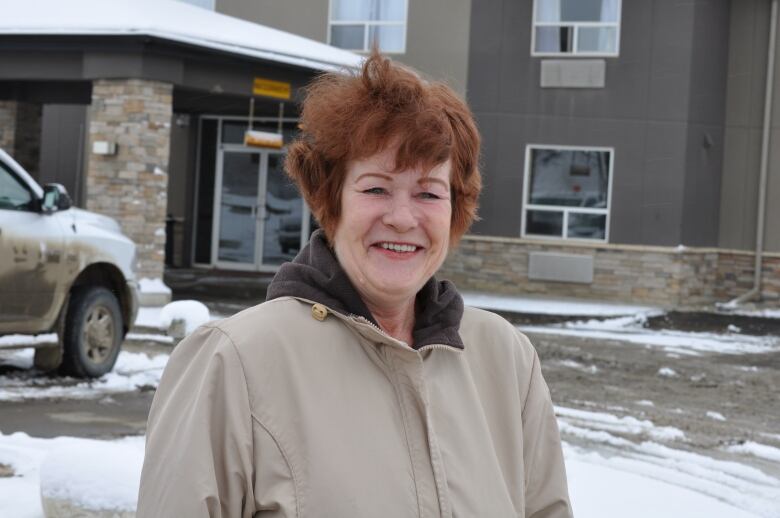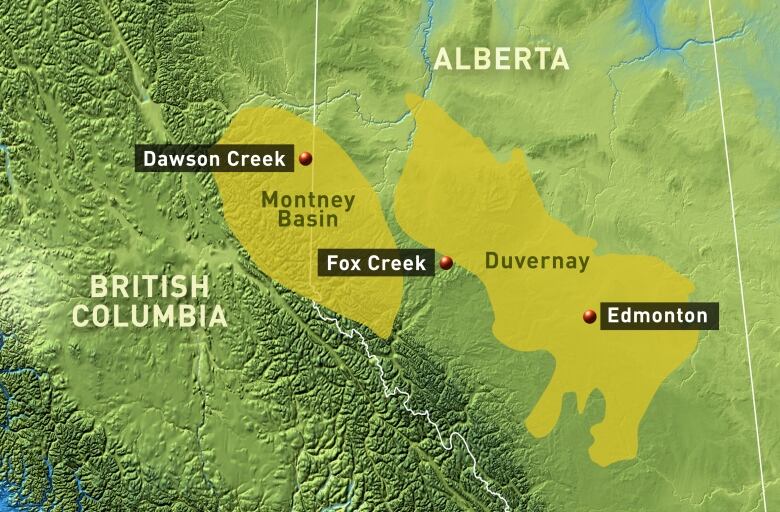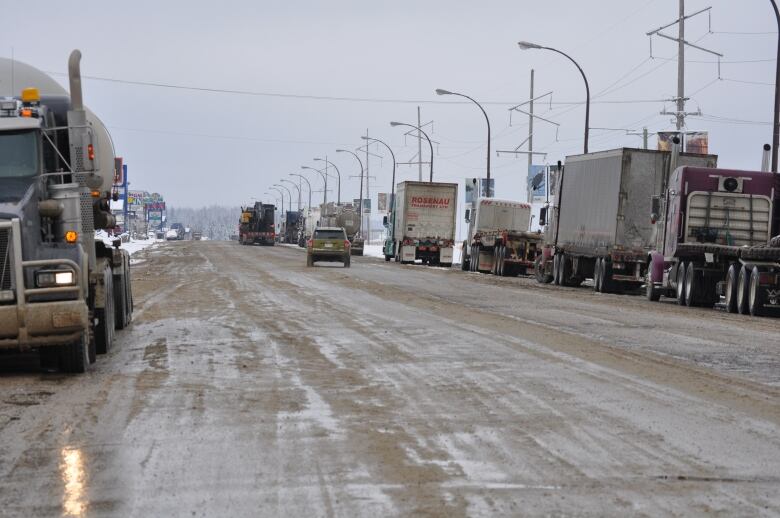Fracking and earthquakes: Exploring the connection
B.C. commission draws link between fracking and 231 seismic events in province
May Mickelow had just settled into her shift as night auditor at the Foxwood Inn in Fox Creek, Alta., when she felt the rumble.
"You didn't hear anything, but you could feel the earth move underneath your feet quite strongly, actually," said Mickelow. "I felt dizzy, as if I was suddenly on uneven footing."

Some hotel guests descended to the main floor, asking Mickelow if she had felt the shaking. She had been through earthquakes before, but not here.
She'd experienced them while living on Vancouver Island, which is prone to quakes. But Fox Creek had never felt anything like the magnitude 4.4 tremor that hit the night of Jan. 22.
The town of Fox Creek owes its existence to the oil and gas industry. It sits atop the Duvernay Shale Basin, a massive underground rock formation containing a wealth of oil and natural gas.
While the link between earthquakes andfrackingremains asensitive topic in energy industry circles, there is a growing body of science on the subject.
Just weeks before the FoxCreek quake, British Columbia's oil and gas commission drew a definitive link betweenfrackingand 231 seismic events in the northeast of the province, at a natural gas field known as theMontneyTrend.
HonnKao, a research scientist with the Geological Survey of Canada in Victoria, B.C., has no doubt that human activities triggered the earthquakes.
"The key issue is how big is the induced earthquake and when is the biggest induced earthquaketo happen. I think that is the remaining question," said Kao, who is among a group of scientists leading research into industry-induced tremors.
Science links fracking and earthquakes
Situated on the main highway linking Edmonton and Grande Prairie,Fox Creekis an industrial town filled with branch plants for energy companies and hotels, such as theFoxwood Inn, that cater to those who travel to work at the oil and gas sites that dot the landscape.

In the days after the quake,Mickelowwas surprised by the muted reaction to the shaking.
"I was quite shocked that nobody seemed to be discussing it or seemed to be upset about it," she said. "I think most people, from what I gather, are afraid for their jobs, which is understandable, but I don't quite understand why people aren't voicing their concern."
In regions like northeastern B.C. and the foothills of Alberta, there is so much fracking going on that it's difficult, if not impossible, to pinpoint which project caused a quake. That's why research is key, notes Kao, adding there are substantial public safety and economic issues at play.
"You don't want to take the public safety solely and ignore the economic benefit," he says, "but on the other hand, it is certainly wrong if you want to take the economic benefit totally as your priority and ignore public safety."
While industry is still reluctant to publicly discuss the issue, some executives are acknowledging the link. Among them is Michael Binnion, CEO of Calgary-based Questerre Energy, which isfracking in the Montney Trend.
He explained that fracking is intended to create disturbances undergroundin order to release gas from shale formations.
"The whole idea is that we are trying to induce a seismic event, and it would be a pretty poor frack job that didn't accomplish that," he said.
But sometimes there are unintended consequences.
"Are we somehow triggering bigger seismic events than what we intend to? I think really that's been more what the discussion is," Binnion notes. "Are we doing that, if we're doing that, how often are we doing it if we're doing it, and how big is it?"
Those are questions regulators in B.C. and Alberta are trying to sort out.
What causes quakes
Seismologist Ryan Schultz has been watching the increasing number of tremors on monitors at his office at the Alberta Geological Survey. He says earthquakes happen when fracking or the deep well disposal of wastewater intersect with naturally occurring fault lines.

"You have a pre-existing fault that's already in the ground. They may not know about it, because faults are quite difficult to detect."
He explains that fault lines deep underground may be ready to slip when human activity gives them the nudge. The result is an earthquake.
"Essentially, just adding this pressure into the fault hydraulically opens it, and makes it more likely to slip on that."
The size of the existing fault determines the scale of the earthquake.
New regulations
One month after the Fox Creek quake, Alberta's Energy Regulator brought in new rules for fracking in the Duvernay zone. It calls on industry to assess the risk of causing earthquakes, and to be prepared to respond to them.
The response would be triggered by a quake exceeding magnitude 2. A magnitude 4 earthquake would trigger an order to cease fracking operations. The regulation is similar to one in British Columbia, but so far only applies to the Fox Creek region in Alberta. The AER says it could be expanded if earthquakes become a problem in other regions.
So far, fracking-induced earthquakes have caused little or no damage in Canada. B.C. and Alberta have each recorded tremors of 4.4 in magnitude, which are considered minor.
Quakes above magnitude 6 are more serious and can cause a lot of damage in populated areas. Nowhere in the world has an earthquake of that level been linked with fracking.
Still, May Mickelow worries about what might be coming for Fox Creek.
"We have a number of older buildings in town that house quite a few people," she says, pointing out some apartment buildingsand the local school, which has more than four hundred students.
"My own building is probably 40 or 50 years old and I don't think [those structures] were built to withstand earthquakes."













_(720p).jpg)


 OFFICIAL HD MUSIC VIDEO.jpg)
.jpg)



























































































